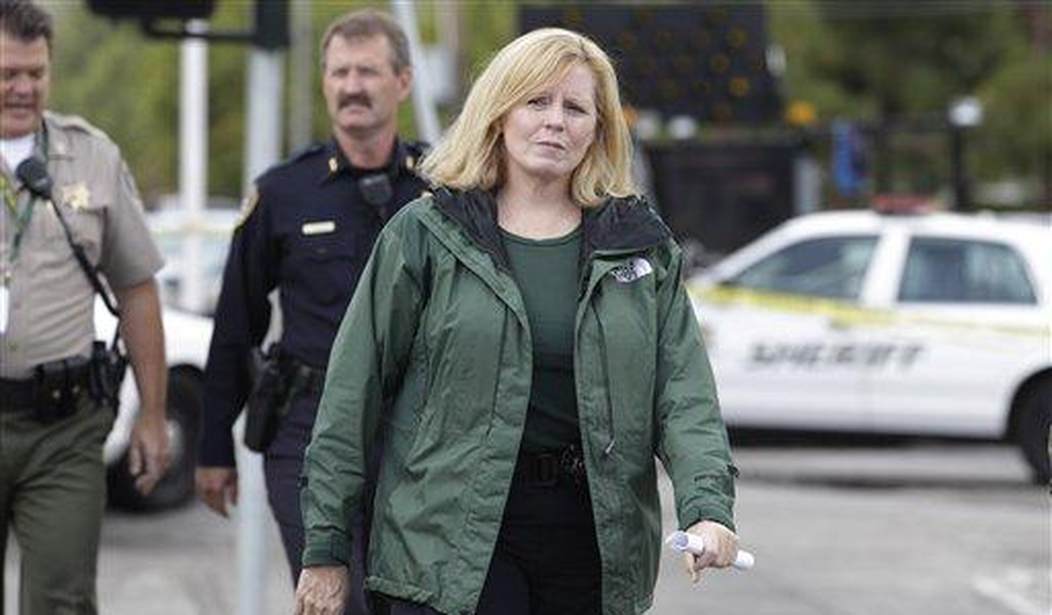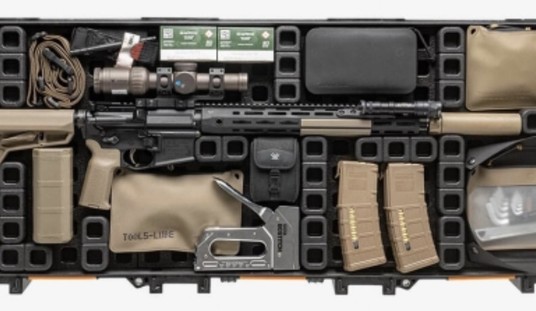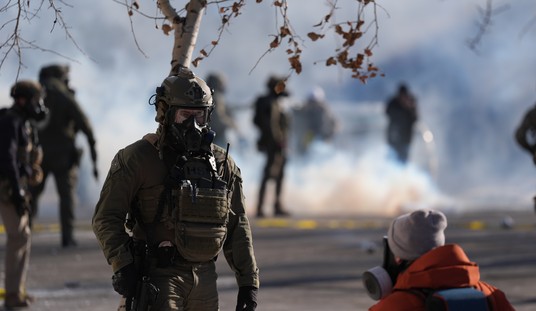We’ll likely learn later today whether Santa Clara County, California Sheriff Laurie Smith will be forced to step down from her position several weeks before she’s set to officially leave office, with a jury now considering whether to find her guilty of corruption and willful misconduct in a civil trial sparked by allegations of favoritism and a pay-to-play mentality when it came to issuing concealed carry permits in the county.
As we’ve reported over the past several weeks, several witnesses for the prosecution have described how they were able to acquire a carry license even when they didn’t fulfill all of the requirements under California law, while others documented the department’s inaction and failure to process their permit applications even after they had provided evidence that they were the victims of ongoing stalking or threats of violence. During closing arguments last Thursday, prosecutor Gabriel Markoff reminded jurors of the double standard employed by the sheriff’s department when it came to carry permits.
“Laurie Smith illegally used CCW’s as a perk as part of a political-influence scheme,” Markoff said in court Thursday. “In short, she was currying favor with VIP’s. Ordinary folks … didn’t even get a response. That’s the system that Sheriff Smith created.”
During the trial, Markoff relied on much of the evidence that led to separate criminal indictments against her former undersheriff, a trusted captain and several donors and supporters. Smith evaded criminal prosecution — she invoked her Fifth Amendment rights in refusing to testify to a criminal grand jury panel in 2020.
The trial included testimony from more than 40 witnesses, many of whom testified to the criminal grand juries. Markoff described how political donors, influential Silicon Valley tech pioneers and other prominent figures got “concierge” treatment from the sheriff’s office with their CCW applications.
This was contrasted to CCW applicants who had stated confirmed serious safety threats. They heard nothing back. Markoff recounted testimony from Smith’s staff about how non-VIP applications rarely got a second look.
He also cited the experience of Rev. Jethroe Moore, former president of the San Jose-Silicon Valley NAACP, who while in the sheriff’s good graces got a permit. When he later backed her opponent in 2018, his renewal application was met with silence.
“What mattered was that he was no longer on her side,” Markoff said. “And once he was no longer on her side, he was out in the cold.”
Smith’s attorney, meanwhile, rebutted the prosecution’s allegations, or at least tried to do so, by claiming that even if “mistakes” were made, they don’t rise to the level of corruption.
Smith’s attorney, Allen Ruby, was sharply critical of the accusations against the sheriff and said the evidence against her was thin.
Regarding the CCW allegations, Ruby said the prosecution’s contention of favoritism relied on a vague definition of what constituted a VIP.
“It’s unanswerable,” Ruby said to the jury. “It is defined in terms that nobody can know the answer to.”
Ruby also took issue with evidence presented that found nine out of 10 political donors who applied for CCW permits in 2017 and 2018 got them, compared to an 11% issue rate for non-donors. He said that was too small of a sample to glean any conclusion and noted that their donations amounted to between 2 and 3 percent of her campaign fundraising.
“This implication that this was somehow a money machine that required distorting the whole CCW application and awarding process, this is a very small part of the campaign apparatus,” Ruby said.
Responding to the count addressing application response, Ruby pointed to a backlog and a crush of applications and emphasized jury instructions stating that oversight, negligence or a mistake are not enough to prove corruption.
“If you think the sheriff made a mistake or misjudgment — how would a person in public life not — the law says it’s not unlawful or willful misconduct in office,” Ruby said.
Yeah, about that backlog. Testimony from several former employees of the sheriff’s department cast doubt on the claim that there really was a long list of applicants to wade through. Instead, jurors heard early on in the trial that some applications were being approved while others were just left to gather dust.
Sgt. Richard Glennon was the key witness on the stand Friday; he was one of Smith’s public information officers between 2016 and 2019, and was the public point person for the specialized gun-permit applications. For the first time in public, he testified that CCW approvals were heavily steered by Smith and a handful of close advisers rather than by a consistent methodology.Glennon testified that permits were far more likely to be approved for applicants with “celebrity status” or public stature, including professional athletes — records have shown San Jose Sharks players as permit recipients — as well as judges, local politicians, influential business owners and corporate figures. Less-prominent applications, Glennon said, “were placed into a file cabinet” and rarely got a second look.“We would get several hundred that were not acted upon,” Glennon said.Also testifying was Linda Wallace, a former executive assistant who worked in Smith’s office between 2010 and 2016. She outlined the general method used to process CCW permits and applications. She said she was never instructed to send denial or rejection letters, which could support a civil grand jury accusation that Smith’s office largely failed to respond to applicants within a statutory 90-day deadline.In a statement aligning with Glennon’s recollection, Wallace testified that after accounting for a “small percentage” of approved applications, “the remainder were in the drawer until at some point they move forward.”A subsequent conversation with Smith, Glennon testified, revealed that the sheriff believed the “law was on her side” in interpreting that if an application was kept in “pending” status, “no notice would be provided.” Glennon, who has a law degree from Santa Clara University, previously testified to the civil grand jury that he was “surprised” at Smith’s stance and implied it was wrong.Friday, Glennon voiced his distaste for having to tell people waiting for an official response that their applications were still “pending.”“It felt disingenuous. It felt wrong. I was essentially lying to them,” he said. “I knew there was no plan.”








Join the conversation as a VIP Member